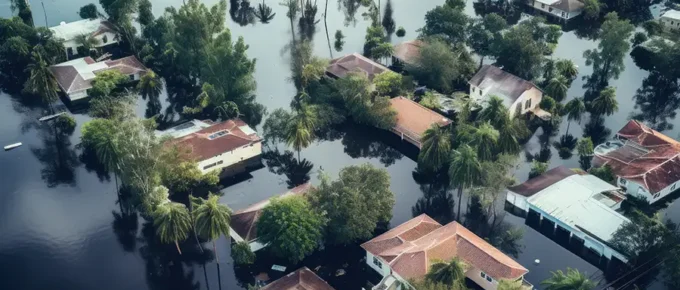
Home insurance claim attorneys
Water damage inside your home can lead to many issues, including expensive cleanup and repairs. You may think covering these costs will be easy because you have insurance for just such events, but your insurance company may often attempt to deny your claim or offer much less compensation than is needed to make things right. Redondo Law can help you seek the compensation you may be entitled to by working with your insurer directly and making sure the insurer fulfills its commitment made in your policy.
What are some examples of water damage?
- Leaking or burst pipes
- Clogged pipes
- Overflowing sinks or toilets
- Clogged gutters
- A/C system leakage
- Appliance malfunction
- Sewage backup
- Leaky roof
Policy coverage
Whether or not an insurer will cover water damage and the extent of what it may cover will depend on your particular insurance policy. Some traditional homeowner’s insurance policies will not cover water damage done by certain natural disasters, such as wind damage or flooding. This is why homeowners will sometimes have a “regular” homeowners insurance policy and separate policies for wind/hurricane damage and flood damage. However, most homeowner’s insurance policies will cover sudden damage caused by water, such as a pipe bursting. Even then, however, your insurer may attempt to deny your claim by asserting the damage was caused by an event your policy does not cover, such as gradual damage over time. Insurers have teams of lawyers to argue for interpretations of your policy that best benefits the insurer.
What homeowners should do after a hurricane
Guide for Florida homeowners post-hurricane: Filing property damage claims, understanding insurance denials, and steps to ensure financial compensation.
What should I do if water damage is discovered?
If you discover evidence of water damage in your home, the first thing you should do is report the damage to your insurer. Insurance companies will use even the slightest delay in reporting your claim as an excuse to try and deny your claim for untimely reporting. Simultaneously, you should try and determine the cause of the water damage. Once you have discovered the cause, you may need to conduct any temporary repairs needed to halt the leakage of water in order to prevent further damage. Be sure to take photos or video of the cause, as this will help document the cause of the damage. You should then attempt to remove any water that remains in the house and dry any wet or damp areas after documenting them. If there is a large amount of water, you may need to contact a water extraction service to help.
Be sure to keep any receipts and other documentation for these initial repairs and cleanup services. Documenting the cause of the damage will help you determine if the cause of the damage is covered and will help you pursue the compensation you deserve. Be sure to take photos or video of any damage caused as well. Documenting the damage will provide evidence to strengthen any claim you may file, and it may help to prevent your claim from being underpaid. It is important to note that you should not begin any repairs beyond those needed to prevent further damage from occurring until you have contacted your insurer and their adjuster has inspected the damage. You may also want to refer to an independent contractor to help you determine the extent of the damage and costs to repair it. Finally, be sure to keep any debris or other damaged property that is removed as part of your clean up efforts (i.e. drywall, pieces of pipe, damaged appliances, etc.) to preserve it for the insurance company to inspect.
As noted above, you should inform your insurer of the damage as soon as possible. They will send an adjuster to evaluate your claim by determining the cause of the damage and the extent of the damage. Once your claim has been evaluated, they may accept the claim and provide compensation, or deny the claim if they believe the cause of damage is not covered by your policy. If your insurer denies your claim or does not fully pay it, an experienced water damage attorney can help you seek compensation.
Should I contact an attorney about my water damage claim?
Insurance policies can be very complex and technical, and an insurer will often take advantage of this to avoid payment. Having an experienced water damage attorney on your side from the outset can maximize the chances of your claim being covered and paid in full by filing the claim for you and avoiding certain pitfalls. An experienced water damage attorney can also help you understand what your policy covers and answer your questions. Once you have secured the services of an attorney, they can correspond with your insurer to ensure your rights are protected. Insurance companies may attempt to claim your damage was caused by something that is not covered by your policy in order to avoid paying anything out or may downplay the extent of the damage done to reduce the amount of compensation.
Your attorney will investigate your claim and gather evidence to support it, help you file your claim, and help you seek the compensation you may be entitled to. If your insurer originally denied your claim, an attorney can help you by filing a lawsuit to ensure the insurance company honors its contract with you.
Redondo Law can help you with your water damage claim
If you have been affected by water damage in your home or business, Redondo Law Firm can help. Water damage claims can be tricky, as insurers will look for any opportunity to avoid paying or minimize any payout. Redondo Law has experience going up against insurance companies, and Mike Redondo and his team will fight to help you seek the compensation you may be entitled to. Contact Redondo Law today!


